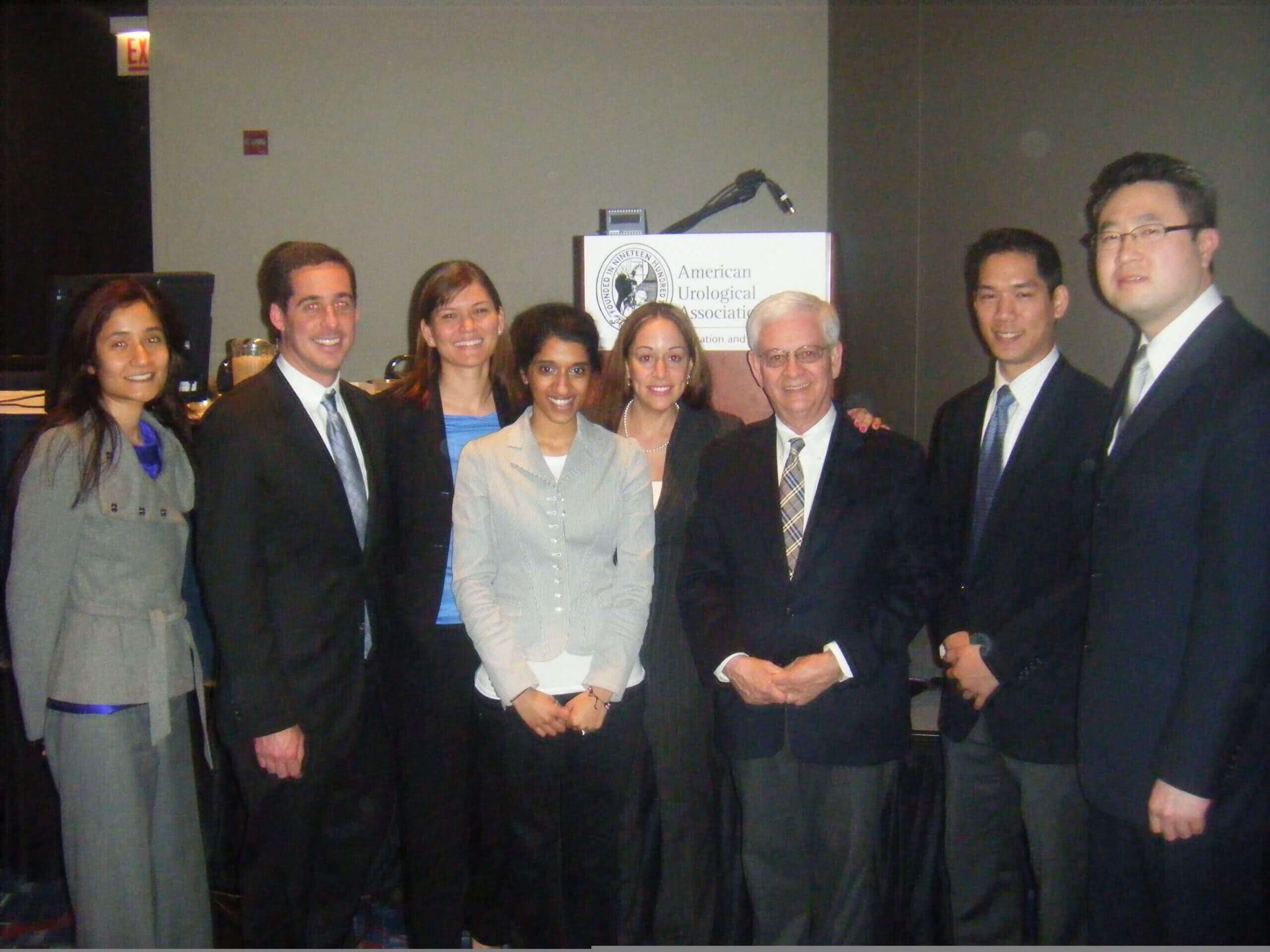Report On Genetic Research Of Dr. Catalona And His Research Group

Dr. Catalona and his research group continue their important research on the genetics of prostate cancer supported by the Urological Research Foundation. They made several presentations at a recent Annual AUA meeting related to their most recent findings.
The following is a summary of those findings:

Genetic variants located in 9 chromosomal regions have a cumulative and significant association with prostate cancer. The 9 risk alleles potentially offer an advancement towards assessing an individual’s risk for developing prostate cancer.

In our study group, several of the prostate cancer risk variants located along 7 different chromosomal regions also were associated with a personal or family history of colon cancer, lymphoma or leukemia. These genetic variants may help explain some of the previously established relationships between prostate cancer and other malignancies.

Preliminary results from one of our studies suggest that prostate cancer genetic risk alleles in combination with Pro-PSA results can more accurately identify men with prostate cancer than total and free PSA.

Prostate cancer risk alleles on chromosome 8q24 are significantly associated with threatening cancer progression among men with PSA recurrence after radical prostatectomy. Patient profiling with these prostate cancer risk alleles may be clinically useful in selecting men more likely to need salvage therapy for PSA recurrence.

Prostate cancer patients who met pathological criteria for “insignificant” disease were much more likely to carry 1 or less of the prostate cancer risk alleles. Men with this insignificant prostate cancer had almost a 3 times increased odds of carry 1 or less of the alleles compared to those with significant disease. Future studies are needed to determine whether knowing the genotype might be useful in conjunction with other clinical factors to better identify prostate cancer patient with potentially “insignificant” disease.

In our patient group, men with a first-degree relative affected with prostate cancer were more likely to be carriers of the 8q24, 2p15 and 10q11 risk alleles than those without an affected first-degree relative and also were more likely to be carriers of multiple risk alleles. These results suggest than men with an affected first-degree relative may be at higher risk for developing prostate cancer due to their risk allele carrier status.











